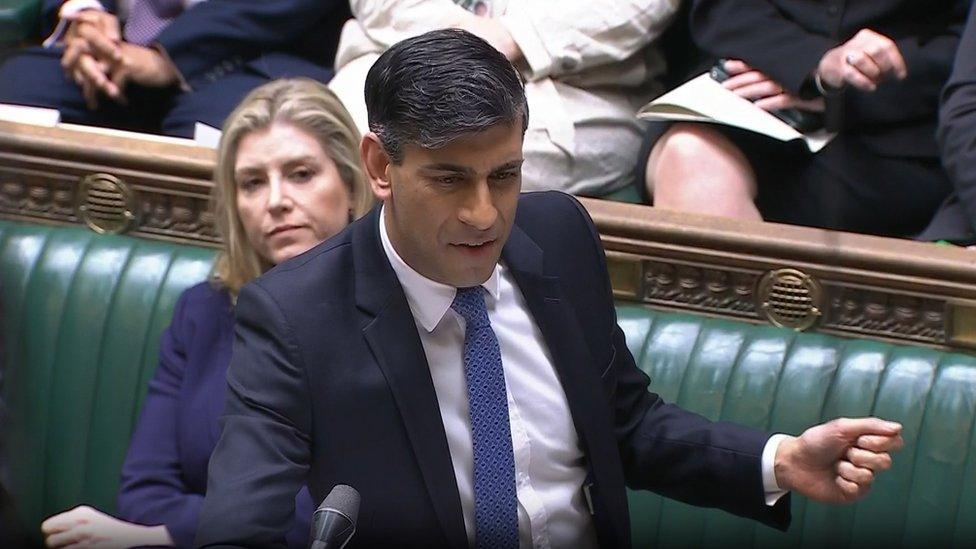285 Dublin asylum seekers moved from Mount Street tents
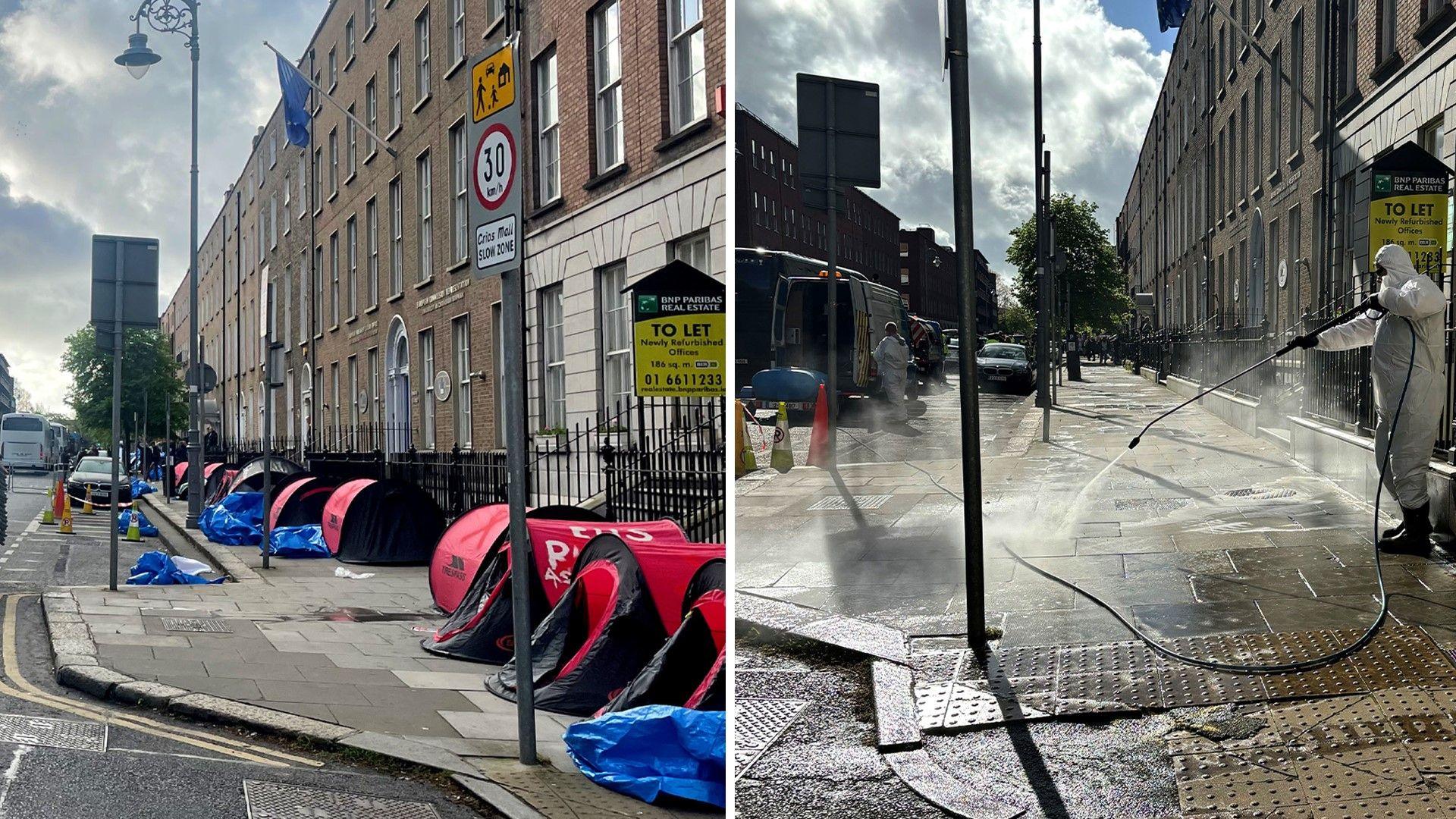
Asylum seekers had been living in tented accommodation for months in central Dublin
- Published
Hundreds of asylum seekers who were living in tents in central Dublin have been moved to two accommodation sites, the Irish government has said.
The asylum seekers had been living in a makeshift campsite outside the International Protection Office on Mount Street for several months.
The Irish government said 285 single male applicants were offered accommodation on Wednesday.
The Irish government said the encampment had been dismantled and all asylum seekers had now been moved to Citywest and Crooksling tented accommodation in County Dublin. A total of 186 applicants were taken to Citywest and a further 99 were accommodated at Crooksling.
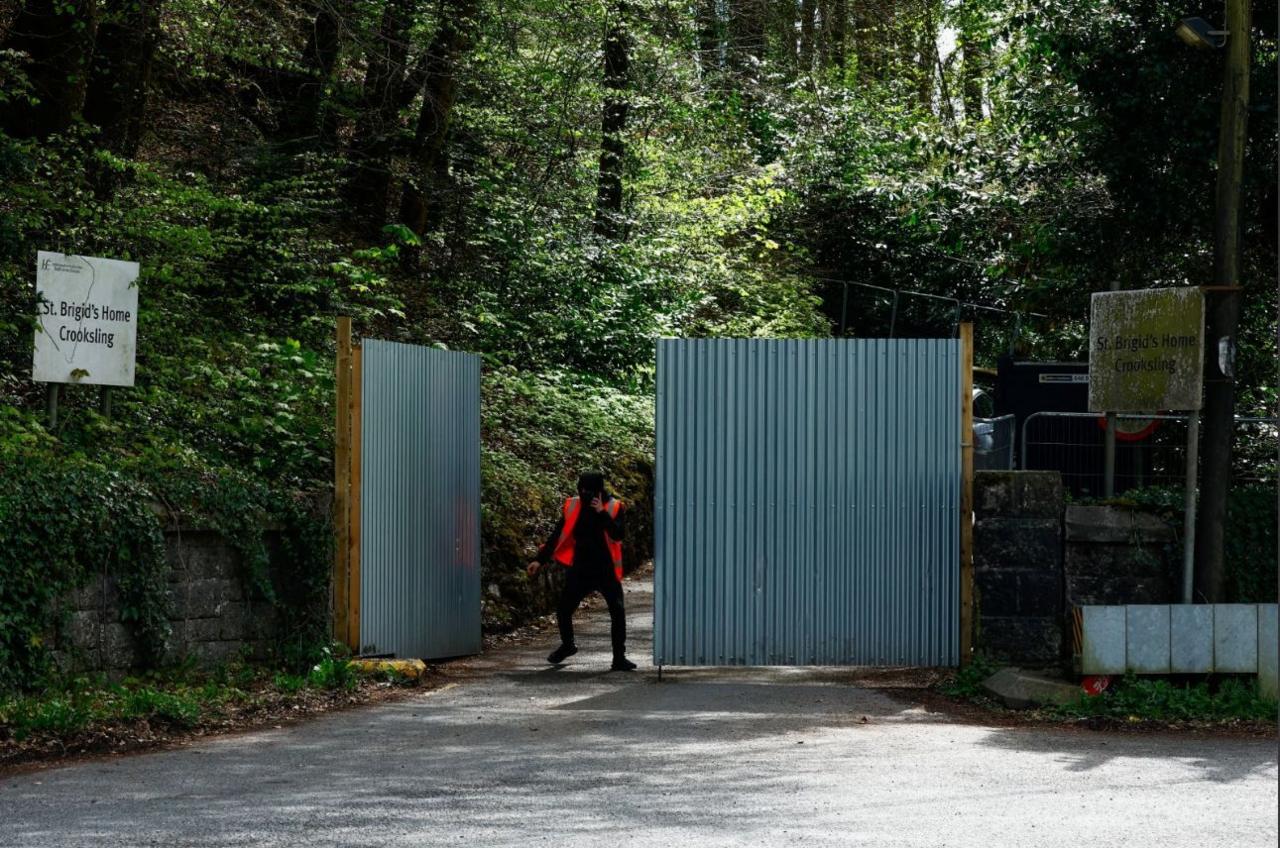
A security guard closes a door at the Crooksling tented accommodation site
A joint agency operation to "ensure the safe movement of people seeking international protection" to designated accommodation took place early on Wednesday morning
The streets in the area were also cleaned by the city's council.
The operation on Wednesday morning was undertaken by the Department of Children, Equality, Disability, Integration and Youth, the Department of Justice, Gardaí (Irish police), Dublin City Council, the Office of Public Works and the HSE.
The government previously tried to move asylum seekers to the Crooksling site over the St Patrick's Day bank holiday weekend.
A number returned to the Mount Street site a few hours later citing the facility was not appropriate, did not have adequate facilities and was too rural with no transport links.
The Irish government said on Wednesday that the Crooksling site had "10 to 12 person robust, weather-proof tents".
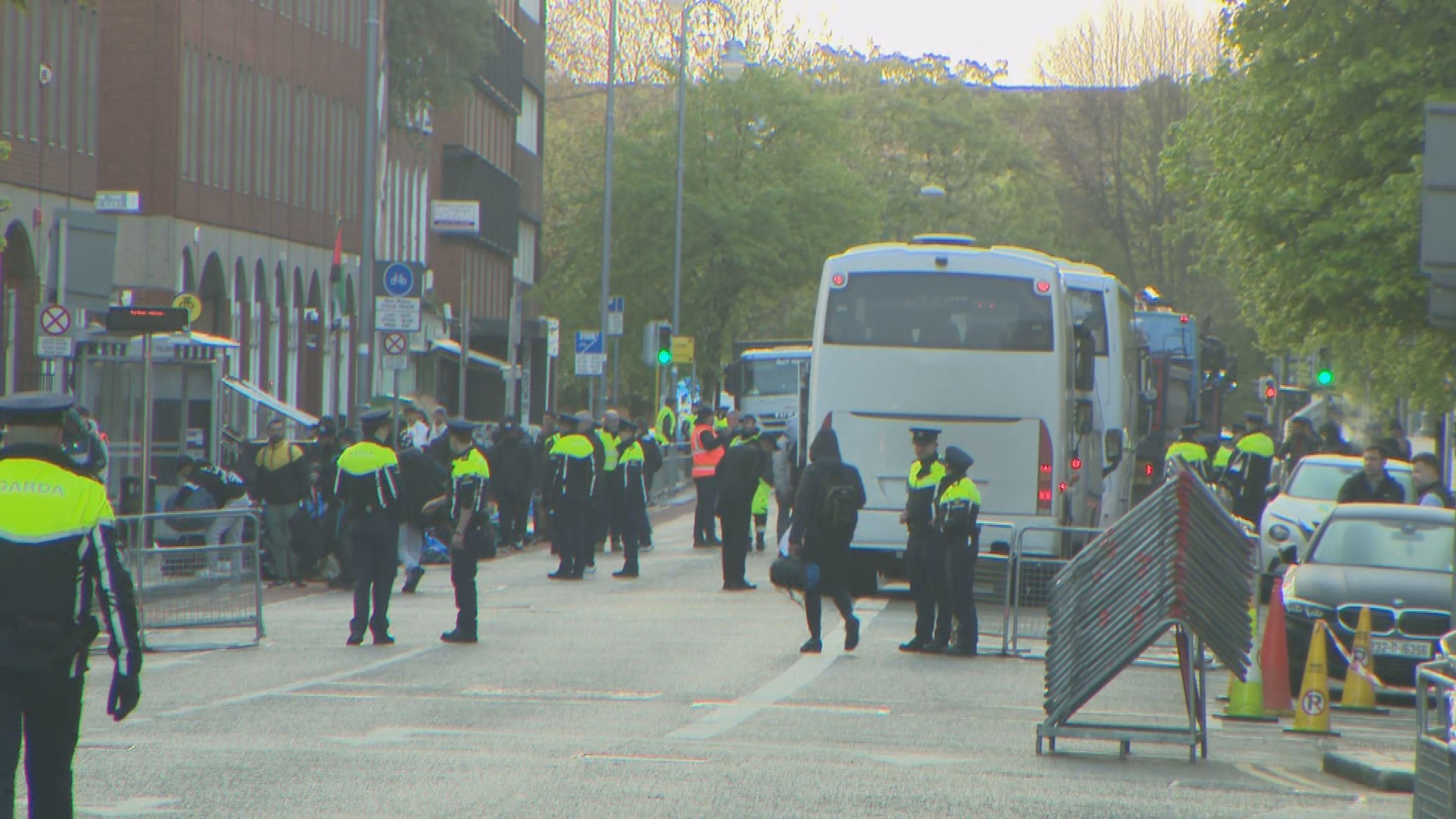
The government said the operation was designed to ensure "safe movement" of people
It also has showers, toilets, indoor areas where food is provided, facilities to charge phones and personal devices, access to and from the city centre as well as 24-hour onsite security.
It also added those in Crooksling would receive the same support as at other locations.
Five buses and 19 taxis were used to move the asylum seekers.
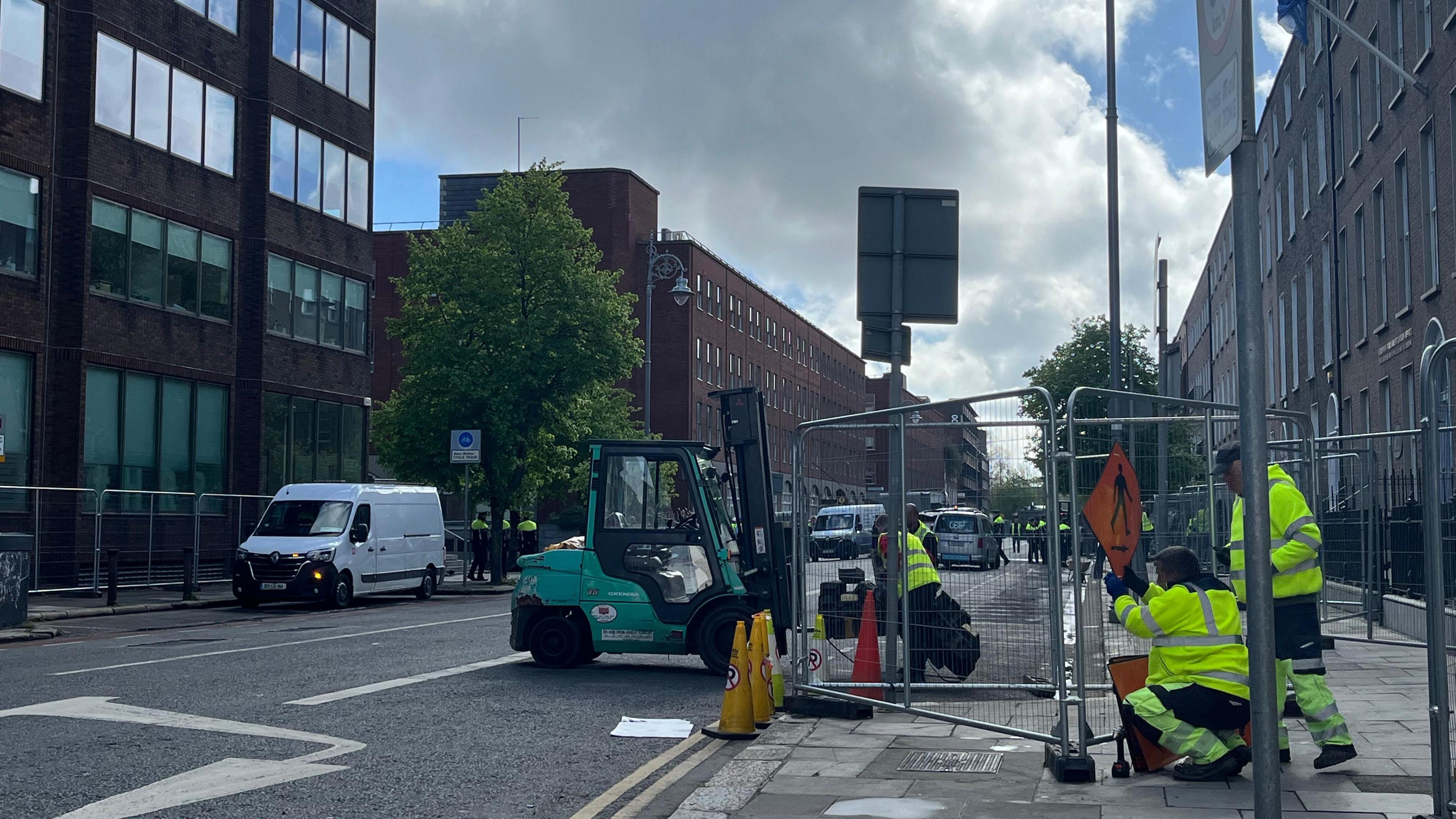
Tents have been cleared from Mount Street
Speaking in the Dáil (Irish parliament) on Tuesday, Taoiseach (prime minister) Simon Harris said that once asylum seekers sleeping on the street were given accommodation, the encampment would not be allowed to return.
Contractors, some wearing protective clothing, cleared the tents from the street.
The Irish government said on Wednesday that Dublin City Council and the Office of Public Works will "secure the area of Mount Street where the tents were placed, with street furniture and traffic management measures in place to prevent the placement of tents".
It said it did not "envisage an encampment building up on Mount Street again" with street furniture and traffic management measures being put in place.
"This underlines how important it is that the Comprehensive Accommodation Strategy is rolled out successfully so that sufficient accommodation is provided, and sleeping outside the International Protection Office isn't necessary."
It said applicants "will be transferred from these sites when appropriate accommodation is identified within the IPAS (International Protection Accommodation Services) accommodation portfolio".
"Given the need to ensure that there is sufficient capacity for families, including those with children, it is not possible to give timelines."
The Irish government said the "offer of accommodation in IPAS centres is voluntary and some applicants are understood to have not taken up a place at their assigned centre".
"IPAS will continue to engage with these applicants and efforts will be made to ensure these applicants do not continue to reside at the Mount Street location."
Conditions 'absolutely appalling'
Noel Wardick, Dublin City Co-operative's chief executive, said he hoped the new accommodation would be better than the makeshift campsite on Mount Street.
"The conditions were what only you could describe as absolutely appalling, completely unacceptable humanitarian conditions," he said.
"No sanitisation, no water, no hygiene, an awful smell of urine.
"People crammed in together, living in the heart of the capital city in a situation which is utterly unjust and unfair and a shameful episode in contemporary Ireland."
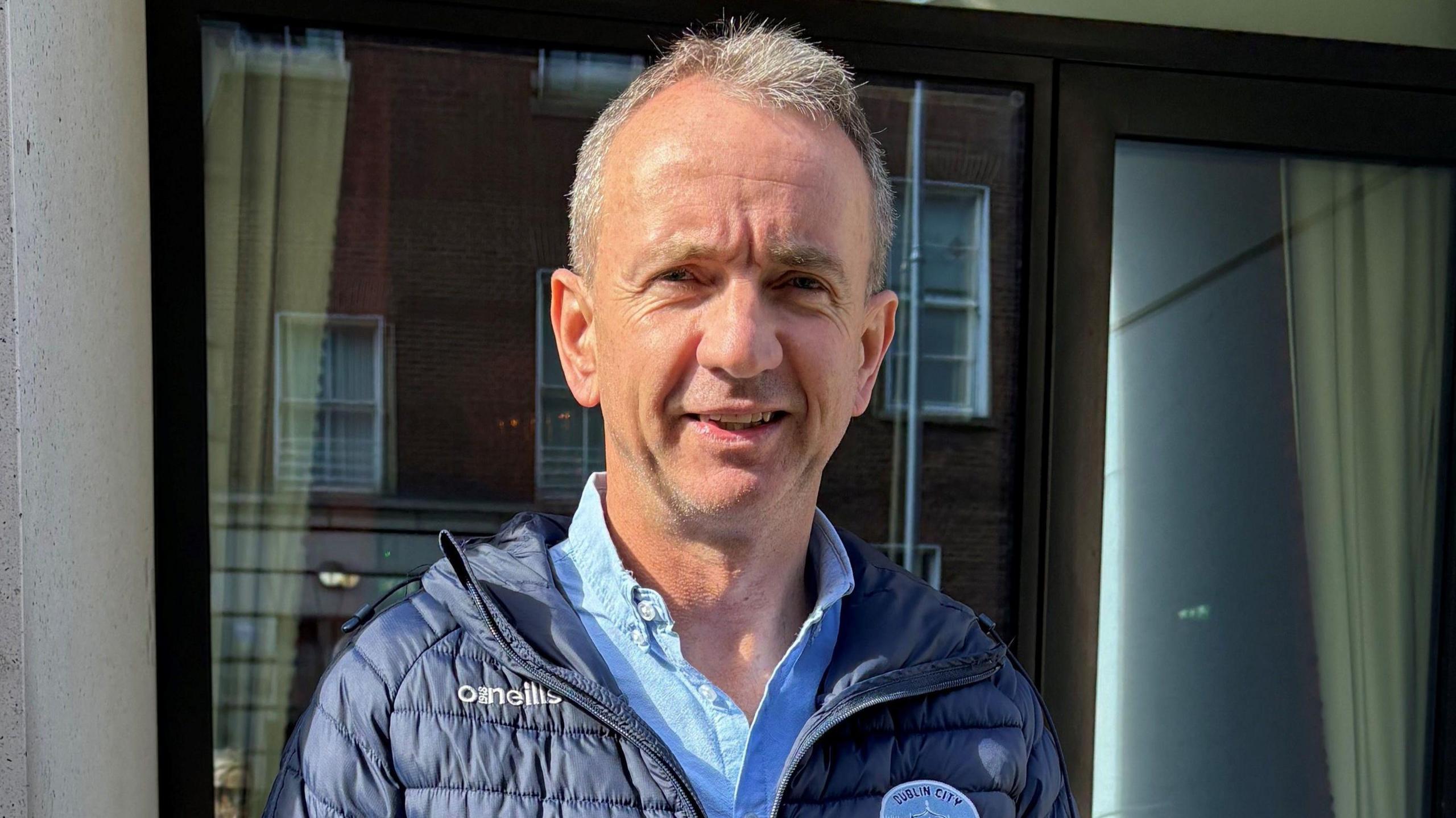
Noel Wardick says the government needs to do more to address the issues with accommodation for asylum seekers
Mr Wardick said politicians had "no political will" to address the issues around asylum seekers.
"Nothing can explain why they were left out in the street for many weeks or months," he added.
"At the end of the day, refugees who are not provided with accommodation have to live somewhere.
"If the state can provide accommodation, as it is legally obliged to do, then there won't be tents appearing on the street of Dublin or any other city.
"However, if the state doesn’t provide accommodation then they will have to live somewhere and I absolutely believe tents will appear on the streets of Dublin again."
At the scene
Aoife Moore, BBC News NI's Dublin reporter
Wednesday was a new day in Mount Street, both in weather and view.
On Tuesday, hundreds of tents lined the busy city centre street, blocking the pavement, with tarpaulins rattling against the wind and rain.
Hundreds of people, who have fled from places like Afghanistan and India, told the BBC they had no running water or toilets, and relied on charities for food. The international press flocked to the area.
Dublin, known as the city of a thousand welcomes, was becoming famous for the wrong reasons.
By Wednesday morning, as the sun rose, dozens of Dublin City Council workers lifted the tents as the asylum seekers were told new accommodation had been found.
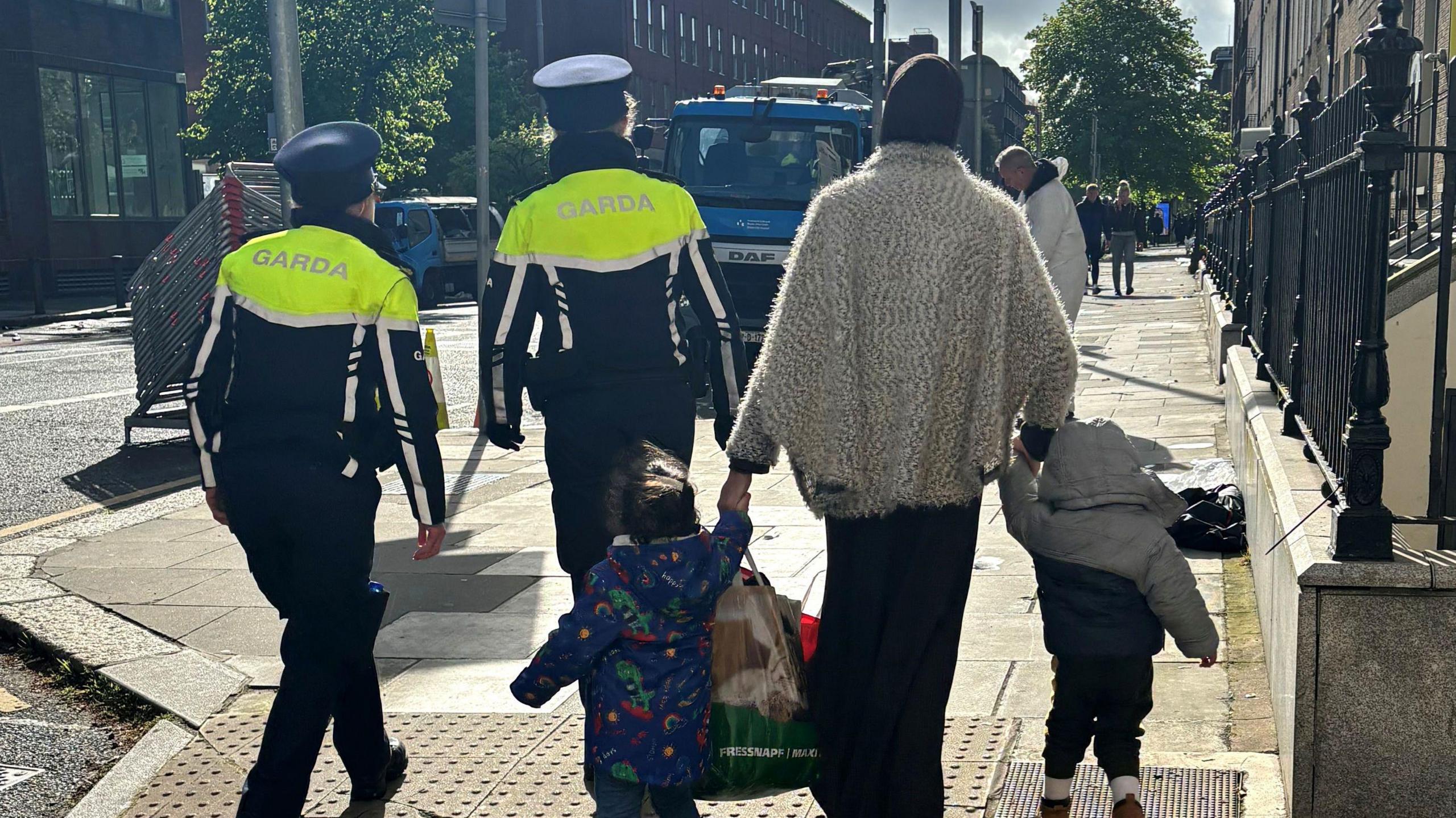
A multi-agency operation to move asylum seekers began on Wednesday morning
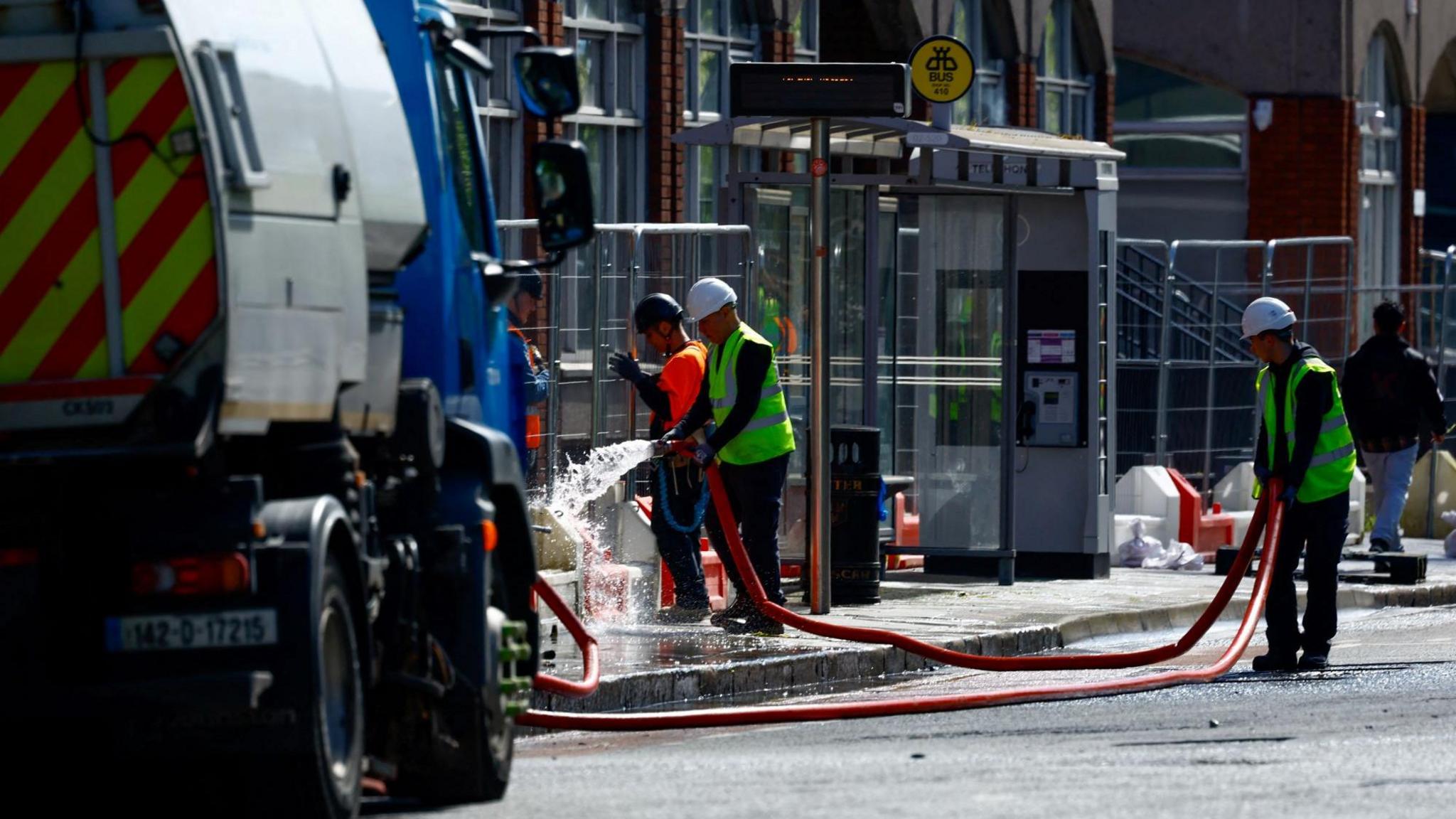
The encampment has been dismantled and a cleaning operation is under way
The Irish government has recently expressed concern that the UK's plan to deport asylum seekers to Rwanda is encouraging more refugees to come to the Republic of Ireland.
Tánaiste (deputy prime minister) Micheál Martin said last week that asylum seekers were seeking "sanctuary here and within the European Union as opposed to the potential of being deported to Rwanda".
The Northern Ireland Office said the Secretary of State for Northern Ireland and Tánaiste had a "constructive phone call regarding illegal migration" on Wednesday.
A spokeswoman said: "The Tánaiste confirmed that there will be no deployment of officers from An Garda Síochána to the Northern Ireland/Ireland border and that the Irish Government shared a steadfast commitment to securing the external border of the Common Travel Area.
“The Secretary of State reiterated that the UK will not accept any readmissions or returns arrangements that are not in our interest.”
Ireland to redesignate UK as 'safe' for asylum
- Published30 April 2024
Asylum seekers living in tents in Dublin moved
- Published16 March 2024
On Tuesday, a plan to draft new Irish legislation which would redesignate the UK as a "safe country" to which asylum seekers can be returned was approved.
It came after Justice Minister Helen McEntee claimed more than 80% of recent asylum claims were from people who arrived in the state by crossing the border with Northern Ireland.
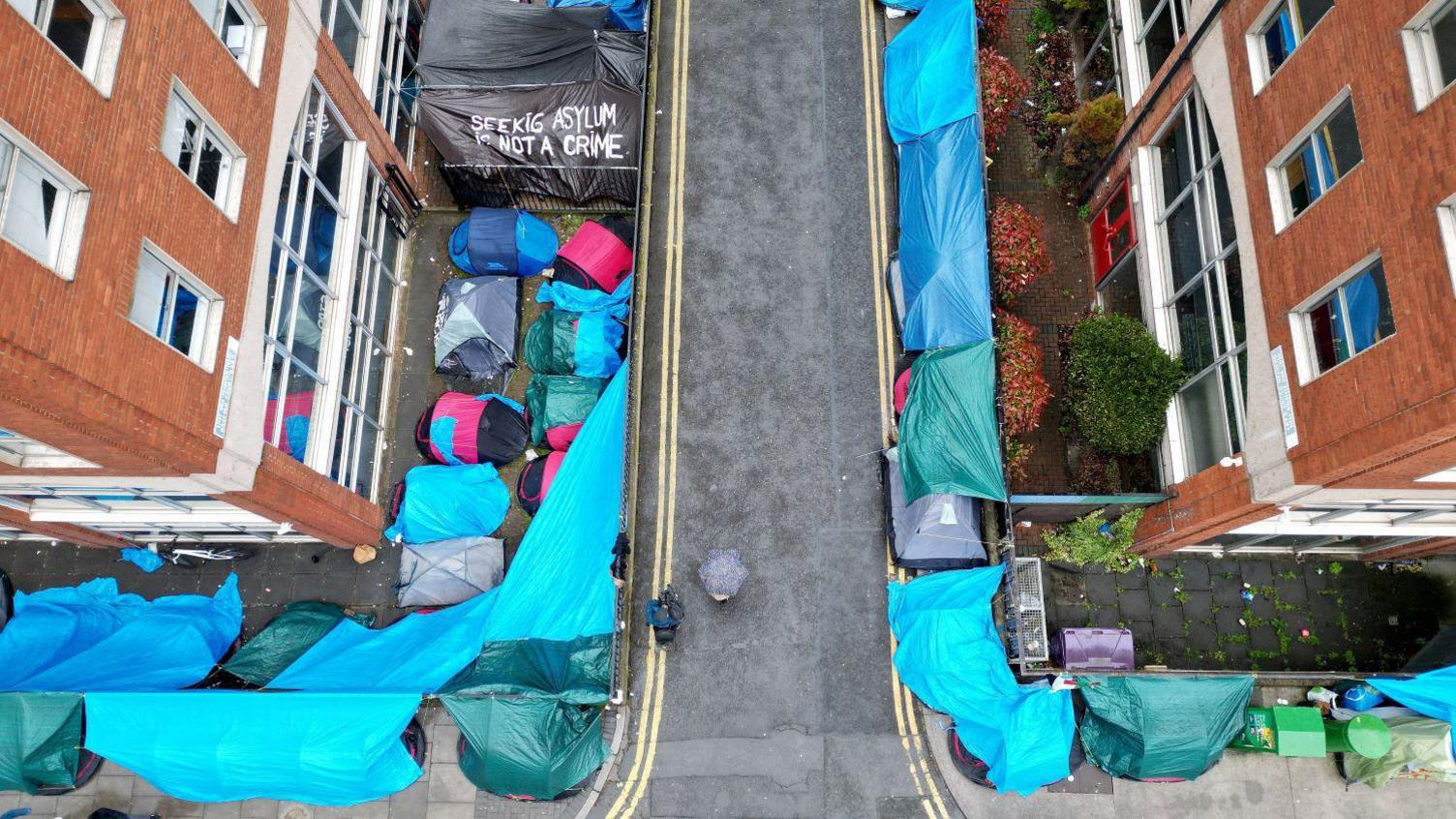
The encampment was set outside the International Protection Office in Dublin
More than 1,400 asylum applicants are currently without accommodation in the Republic of Ireland.
One 22-year-old man from India told the BBC he had arrived in the Republic of Ireland via Northern Ireland.
The man said he had been studying in the UK but his visa had expired.
He said he left the UK after Brexit because “they made strict rules”.
Related topics
- Published13 June 2024
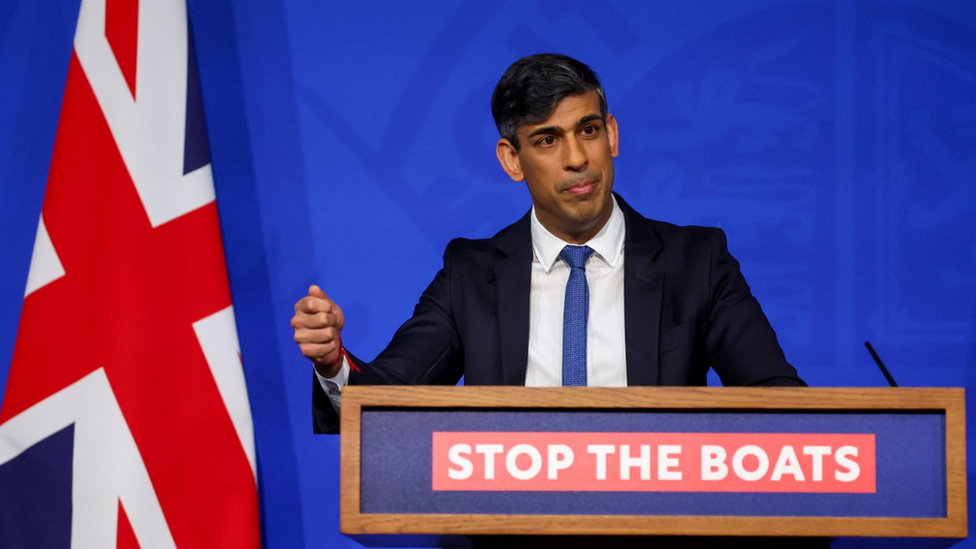
- Published28 April 2024
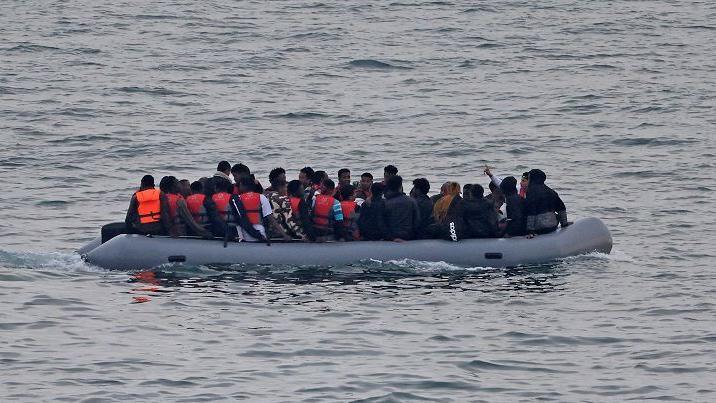
- Published1 May 2024
